Tennessee Farmer Makes Hay While the Sun Shines
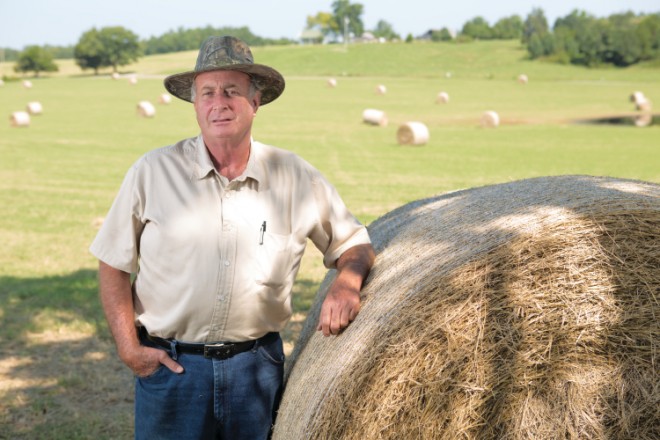
“I’ve supplied hay for just about anything that you can think of that eats hay,” says Mark Prater, owner of Prater Farms Premium Hay in McMinnville. He is not exaggerating. Since he left the dairy business in 1997, Prater has parlayed his hay acreage into feed for elephants, camels, zebras, antelope, rhinos, buffalo, horses, cattle, goats, sheep and more. Soon, he hopes to start an international shipping business to fulfill hay requests received from countries as far-flung as China, Jordan and the United Arab Emirates. “It’s developed into a lot larger business than what I had expected,” he says with a chuckle.
About 18 years ago, economics forced Prater to close the dairy his grandfather started in 1940. “My family had actually milked there for 55 years,” he says. The family had always raised hay for their herd, so Prater transitioned into growing hay full time. Gene, his 86-year-old father, still works with him on 400 acres.
Mark’s mother, Mamie, is also supportive, as is his wife, Paula, a schoolteacher. In addition, he has eight to 10 part-time employees who help him with the year-round business.
“There is a lot of demand for good quality hay around the world,” Prater says. To keep his customers supplied, he also acquires hay from other farmers. At first, he marketed and advertised the business, but now gains customers mostly through word-of-mouth.
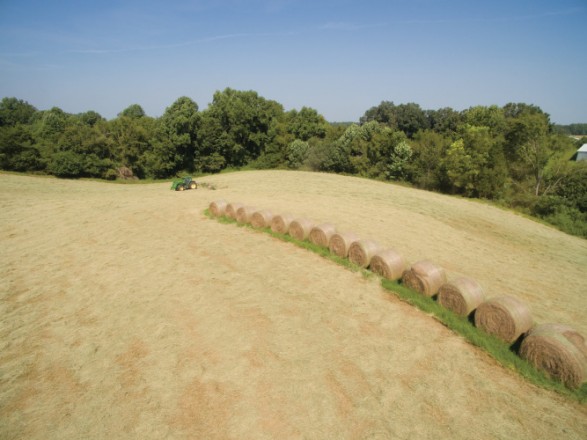
Hay production has historically been a lucrative market in Tennessee, where it’s the third-largest crop following soybeans and corn. The U.S. Department of Agriculture valued the state’s hay production at $442 million in 2015, with 3.9 billion tons produced.
Most Tennessee hayfields consist of tall fescue, orchardgrass or timothy, according to the University of Tennessee Extension Service. Prater Farms Premium Hay grows orchardgrass and timothy, along with bermuda, wheat and brown top millet. He also handles alfalfa hay, which is used primarily as a feed for horses and dairy cattle, for customers that require it.
“I grow what I do because of the markets I have,” he says, whether it’s for horses, cattle, elephants, buffalo and so on.
Each type of hay requires different management practices. Bermuda, for instance, “comes back year after year,” Prater says. “We have fields that are over 20 years old that are still coming back every year. Some crops, like wheat, have to be planted every fall, and you harvest one cutting in the spring and that’s it. It’s the same way with millet.”
Each year, he grows about 40,000 to 50,000 square bales and about 1,000 round bales. The hay is the same quality, but square bales require more management and labor while producing the best income from customers willing to pay top dollar for the convenience of smaller bales.
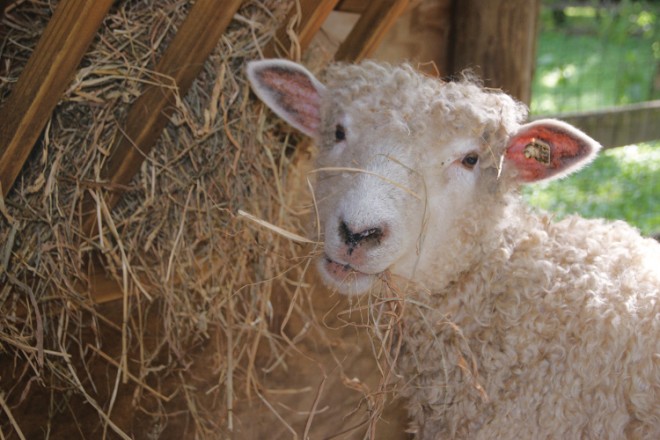
Prater’s reputation and quality product has led to unusual markets. Take, for instance, the day 18 years ago that he showed up at the Knoxville Zoo with sample bales in his truck. He’d already begun supplying hay for the Nashville Zoo.
“I went without an invitation,” he says, adding that he just walked up to the front gate and asked to see someone in charge of animal nutrition. “They told me I’d have to make an appointment. I said, ‘I’ve driven 150 miles to get here, and I don’t want to leave without speaking to someone.’ ” One phone call later, and the gatekeeper said, “They told me to tell you don’t leave!”
READ MORE: Heritage Breed Farm Animals at the Nashville Zoo
In addition to the Nashville and Knoxville zoos, Prater supplies hay to the Dallas Zoo, the Elephant Sanctuary in Hohenwald, animal acts in Pigeon Forge, and countless livestock and horse owners, including Churchill Downs, home of the Kentucky Derby.
Contact Mark Prater
He attributes his success to careful management of everything, from the inputs (fertilizer) to the land preparation to the seed. “We make sure it’s fertilized right; we take steps to ensure that it’s weed free; we watch and treat for insects; and we have the equipment required to produce high-quality hay,” Prater says.
He is particularly proud of his product’s consistency. “Our customers know when they get a load of hay, it’s going to be pretty much like the last load they received,” he says. “An important incentive that my customers appreciate is that I assure them that, Lord willing, I will not let them run out of hay. Even in tough drought years, I have always kept my customers supplied, and have gained new customers for that reason.”






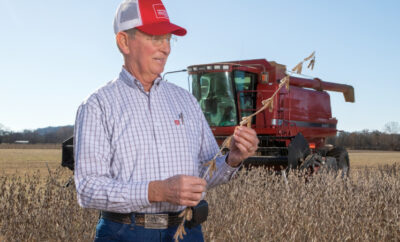







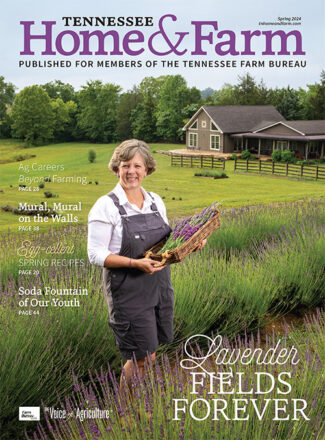
Leave a Comment